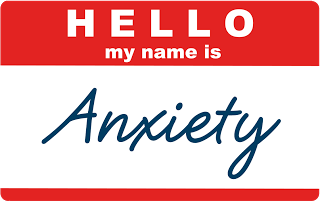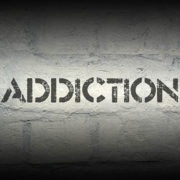
If you have a loved one or employee struggling with substance use disorder or other dysfunctional behavior, then the information in this blog post could literally save their life.
You have probably heard that someone with a substance use disorder needs to hit a rock bottom before they will be open to help. There is truth to that. But the part you may not be aware of is that we do not have to helplessly wait around for our loved one to hit that bottom.
In fact, doing so could lead to their suffering a fatal overdose. Harvard University, in conjunction with the Boston Police Department, did a study where they sent undercover officers to multiple locations in the Boston area to purchase illegal drugs on the street. The drugs were then taken back to a lab for analysis.
The findings were very scary–most of the drugs purchased by the undercover officers tested positive for substances other than what the dealers claimed they were. For example, what was sold as heroin was often a synthetic opioid or some other combination of substances which often included the very deadly drug fentanyl.
These findings show that loved ones with a substance use disorder may just be one use away from a fatal overdose. And with 160 fatal overdoses daily in our country, simply waiting around for our loved ones to hit rock bottom may prove to be a fatal decision. All too frequently these days, rock bottom can be death.
Ken Seeley, interventionist on the long running, multi Emmy Award winning TV show A&E’s INTERVENTION has developed the HELPS model to guide interventionists and families to work together in raising the bottom, or creating a rock bottom, to help save a loved one’s life and move them into recovery. The HELPS model looks at five areas where the consequences of addiction take their toll.
HELPS Model
Health–Addiction is a physical disease affecting the user’s body from the inside out. Consequences range from liver disease, skin abscesses, premature aging, psychiatric disorders, memory loss, central nervous system damage, and eventually death. Sometimes it is a health issue that motivates the loved one to move towards recovery.
Environmental–It has been proven that environmental factors strongly influences or arrests the development and subsequent behaviors of someone with substance use disorder. Are you supporting the recovery of the loved one, or enabling their addictive behavior?
Legal–Addiction frequently involves legal consequences such as DUI’s, arrests, marital separation, divorce, loss of child custody, and exclusion from wills. Often times the loved one will engage in illegal activities in order to support or maintain their habit.
Personal finances–Addiction creates financial crisis including job termination, eviction, foreclosure, and even bankruptcy. Supporting a loved one by giving them money, paying their bills or employing them can enable their addiction.
Spiritual–Has your loved one lost faith, hope and peace in their life? Addiction is also a spiritual affliction that robs the loved one of their spirituality leaving them to feel hopeless and alone.
By identifying which of the five areas above are affecting your loved one, then determining how to leverage that area and set healthy boundaries and consequences in a respectful and family-unified manner, HELPS manually raises the rock bottom instead of playing the deadly game of waiting for the loved one to hit rock bottom on their own–which could mean a fatal overdose.
The disease of addiction is taking too many lives and we have to find smarter, more effective ways to save our loved one’s lives. Using the HELPS model is a smart way to go.
If you think you or a loved one may have an addiction, please feel free to call or email me for a free consultation. Addiction is serious, but intervention and treatment can save lives.
Call me at 949-303-8264 or email me at randy@randymoraitis.com
Websites: www.carepossible.com, www.randymoraitis.com
Facebook: https://www.facebook.com/RandyMoraitisCoach/
Twitter: @rmoraitis
About Randy Moraitis, MA, BCPC, CIP
Randy is married to Kim and they live in Laguna Niguel. Together they have a blended family of five adult children and three beautiful grandchildren. (If you don’t believe Randy, he will gladly show you pictures!)
Randy is a Certified Intervention Professional (CIP) and expert in helping families and individuals affected by addiction and/or mental health issues through counseling, coaching and interventions. He is a Board Certified Pastoral Counselor and is both licensed and ordained as a pastoral counselor. He has five professional coaching certifications and loves working with clients on executive coaching, life coaching, wellness coaching and recovery coaching. Randy has a master’s degree with emphasis in theology and counseling, a bachelors degree in management and leadership, and a certificate in health and fitness with emphasis in exercise physiology and sports psychology from UC Irvine. He has been leading groups, individuals and families to mental, physical and spiritual healthy in Orange County for over 25 years.












Leave a Reply
Want to join the discussion?Feel free to contribute!